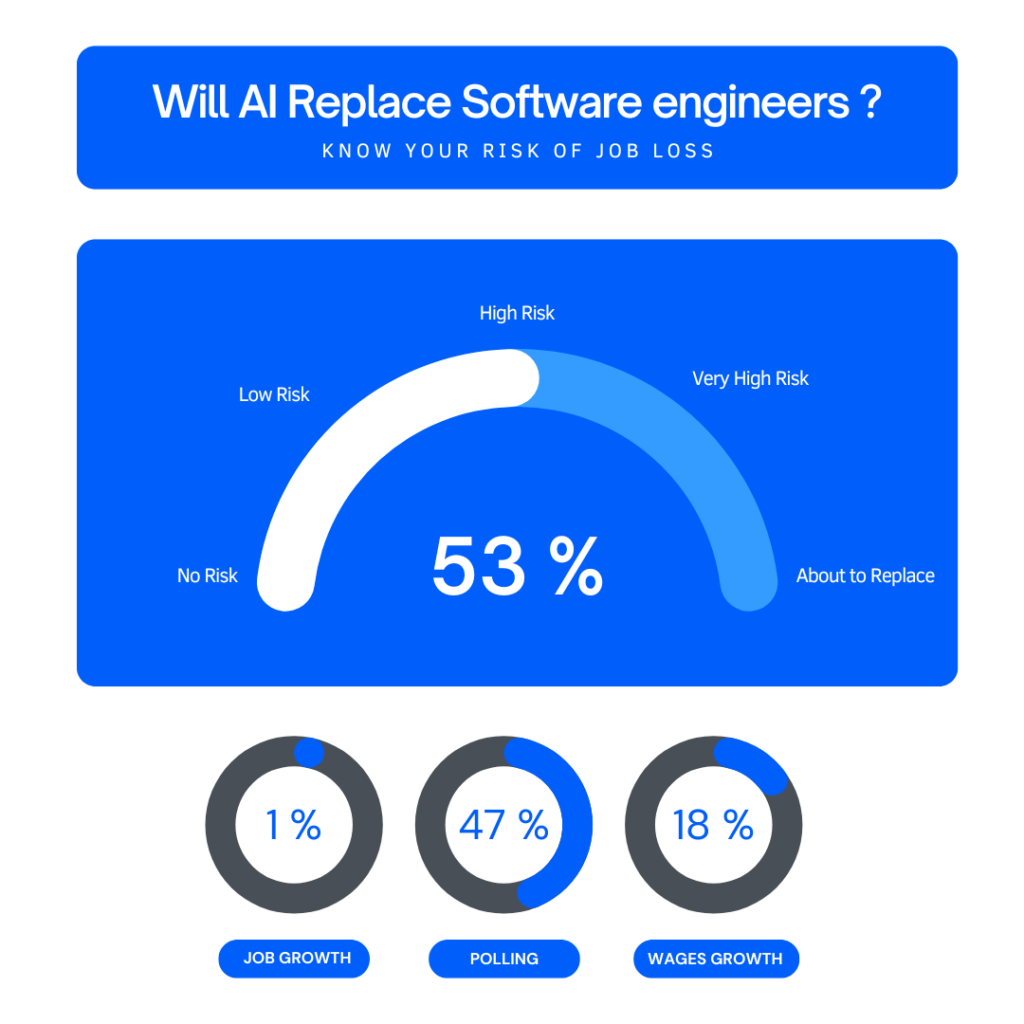
Technology is the industry which has seen robots grow in the past decades. The main
driving force in technology is undoubtedly – computers. Now, until the last few years
computers did not have the ability to think or do any work itself.
In other words, if you wanted to do anything with computers, you needed to programme
those things beforehand and then get the results based on that you have programmed.
The professionals who programme a computer are known as software engineers.
Everything that we do in your mobile, laptop, desktop computer, mac or iPhone or even
on our smart TV, has been programmed by these software engineers. But, as we said
technology has been advancing rapidly. Recently, we have invented something called
GPT which has the capability of writing programs itself. You just have to give a
command to it and it’ll write the whole program – just like a software engineer. That’s
why too many programmers are worried – will AI replace software engineers or not.
So could AI systems eventually automate this cognitive labour out of existence? The
stats aren’t encouraging – studies show the ‘software developer’ job category has over a
52% risk of being impacted by automation in the coming decades. A recent survey also
found nearly half of the people on which the survey was conducted believe there’s a
chance this occupation will be mostly automated using AI within 20 years.
But, there are reasons why they are concerned. Recently, OpenAI and companies like
that have launched AI models (like: Codex) that is especially trained to write code.
These new age technology has potentially impact software engineers life.
However, it’s important to differentiate between full automation and simply assisting
human developers. Just as past tools like compilers, code editors, and Stack Overflow
enhanced the productivity of programmers without replacing them entirely, AI may
augment rather than obsolete this career.
After the sudden rise of AI, many polls have been conducted on software engineers
about their view on the impact of AI as a replacement of programmers.
A survey which was conducted on 8943 software engineers, reported that 47% of the
people believe that task programming, that requires highly skilled and sharp brained
people, can be automated by AI. And, they believe that all these things can happen in
the span of just 20 years from now!
However, we when taking vital steps on our carrier should not rely on these polls where
people may have just expressed their concerns and point of view.
Job Growth
While many assume the future is bright for coding careers thanks to AI and tech
advancements, my data actually points to some concerning trends for computer
programmers specifically. It was estimated, as stated in the latest forecasts, that this
position might experience a decrease in employment over the following decade.
Based on the figures presented by the Bureau of Labour Statistics, it appears that a
reduction in job opportunities for computer programmers is imminent in the future with
an estimation of a 10% decrease even before 2032. This is considered quite negative
news when compared to software developers who are expected to see much more
positive trends in demand.
So what gives? Why would demand be shrinking for these coding professionals?
A big part could be the rapid pace of automation eating away at some of the routine
programming tasks. AI models are getting increasingly sophisticated at churning out
clean code from high-level instructions. Things that may have required human hands
on-keyboard just a few years ago can now be at least partially automated.
In addition, a general shift to better coding practices and the introduction of new tools
that do not require human programmers at all levels is now visible.
However, not every cloud has a silver lining. Some specialists forecast that these
program developers are going to transition into more complex jobs such as a software
engineer or full-stack developer, but this will depend on them. On the other hand, it is
indubitable that the coding landscape is undergoing radical transformations due to
automation and artificial intelligence.
For aspiring programmers, it may be wise to focus on building up complementary skills
beyond just coding ability alone. Things like project management, systems design, data
analysis and more could make for a more AI-proof career path long-term. Those who
can think strategically about technology implementation, not just write scripts, may find
themselves in highest demand..
Perhaps the best proof that humans aren’t immediately expendable comes from the
healthy wages and compensation packages software engineers command. Their
median pay was almost $100,000 in 2022 according to the BLS – more than double the
overall median. This is a testament to how indispensable their role remains.
For now, it seems AI is more likely to complement rather than replace human software
engineers by automating some repetitive low-level tasks. But the higher level
architecture, integration, and implementation will still require skilled human developers
for the foreseeable future. Though AI will undoubtedly transform parts of the field, it
won’t be stealing their lunch anytime soon.